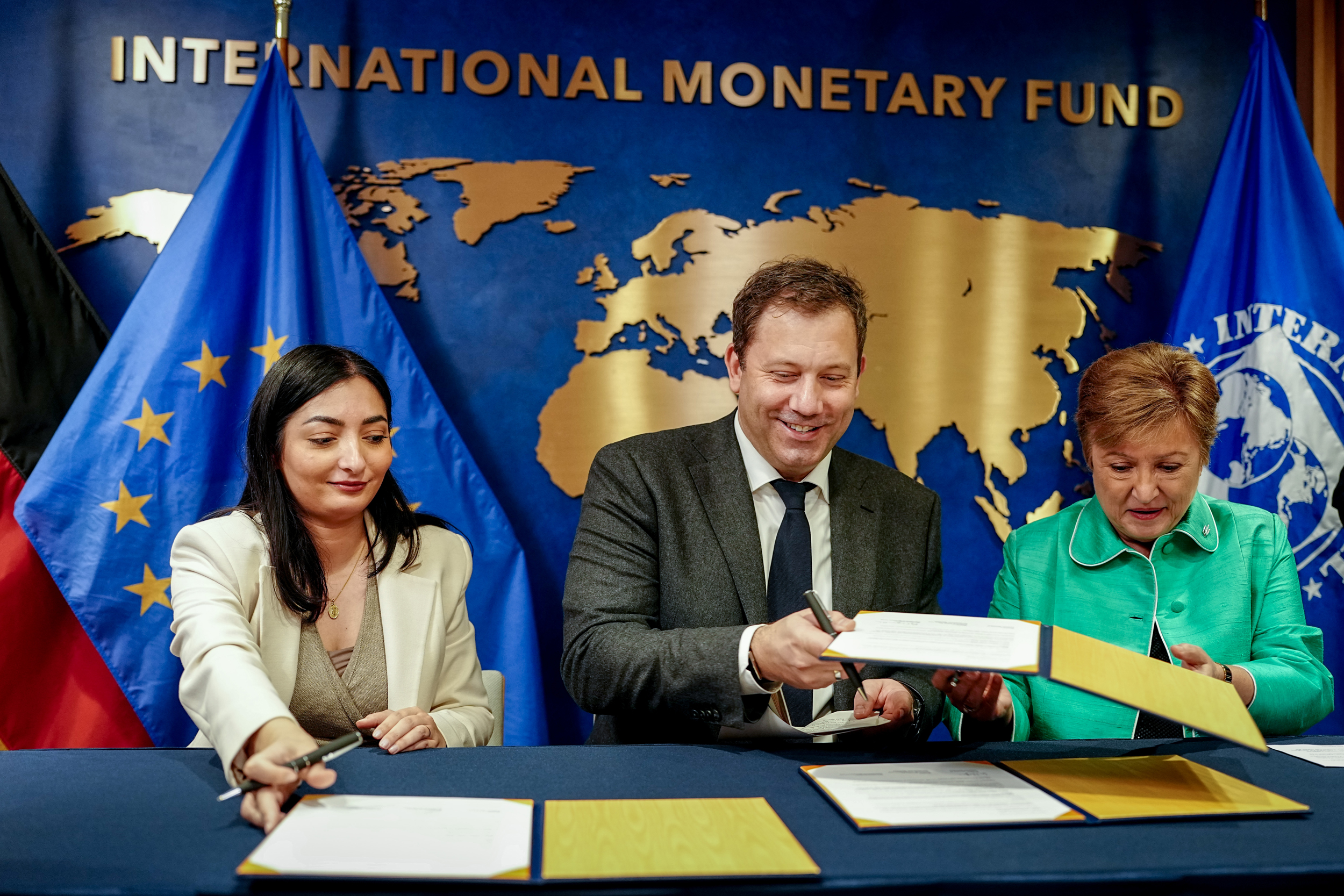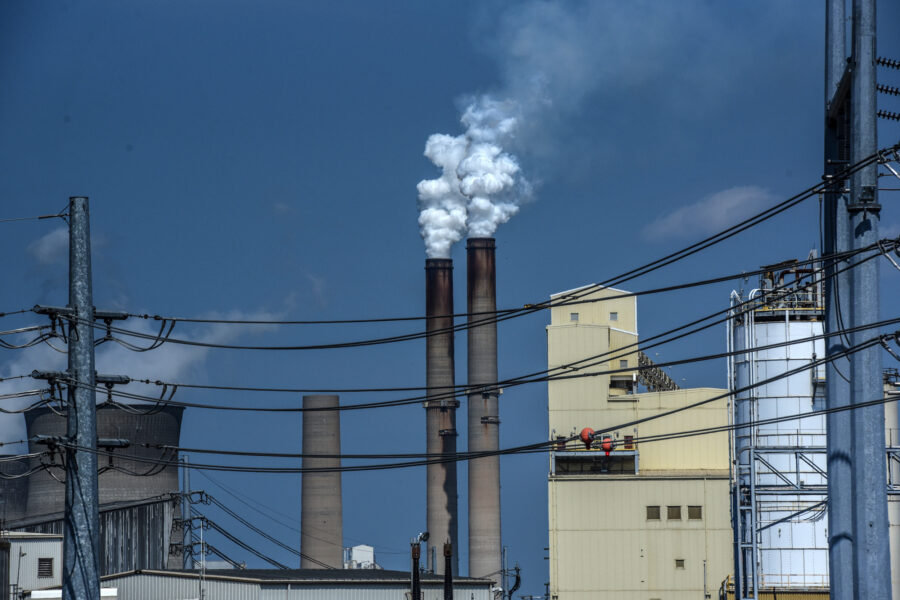Economists from Asia, Africa and other regions are urging international financial institutions to reform their loan frameworks and mobilize more resources to help developing countries transition off fossil fuels and become climate-resilient.
A report released Wednesday by the Task Force on Climate, Development and the International Financial Architecture lays out five guiding principles for the World Bank and the IMF to restructure their mandates and financing policies and mobilize significantly more private and public capital that developing countries need to decarbonize.
The report was released as the two international institutions are holding their annual meetings in Washington, D.C. A lot has changed since last year’s meetings, with the Trump administration’s dismantling of the U.S. Agency for International Development and withdrawal from the United Nations Framework Convention on Climate Change’s Paris Agreement earlier this year.
At the unveiling of the report at the National Press Club on Wednesday, the authors said it is more important than ever that international and regional financial institutions take a leading role in addressing climate change and give countries from the Global South a seat at the table.
The window to limit global warming to 1.5 degrees Celsius is “vanishing,” the report warns, calling on financial institutions to align their investments with green transformation and ensure sound and sustainable climate finance.
“The big economic challenge right now is that capital flows are going in the opposite direction. They’re going from South to North,” Kevin Gallagher, director of Boston University’s Global Development Policy Center and a leading member of the task force that produced the report, said in an interview with Inside Climate News. “And the major shareholder, the United States, is not interested in this agenda at all.”
The Independent High-Level Expert Group on Climate Finance, a global panel of economists and policy experts, estimates that emerging and developing countries, excluding China, will need between $2.3 and $2.5 trillion per year by 2030 and between $3.1 and $3.5 trillion by 2035 to fund clean energy, adaptation and resilience work and pay for loss and damage from climate change.
Sara Jane Ahmed, the managing director of the Vulnerable Twenty Group of Finance Ministers, officials from the countries most vulnerable to global warming, said that international institutions have made progress on climate change but there is “colossal need that continues to grow.”
“Climate-vulnerable economies must have access to emergency financing to survive climate shocks, even as they need affordable financing for long-run investments with urgency,” she said.
Floods, droughts and other disasters that climate change is worsening can set countries back on their debt payments, destabilize their economies and require them to take out new loans.
From the pandemic to the war in Ukraine to new tariffs from the United States, an uncertain political environment is slowing economic growth. The high cost of borrowing money has also discouraged the investments needed to build resilience and transition off fossil fuels, the new report said.
Gallagher, in Washington, acknowledged deep structural and political obstacles that continue to shape how the agenda can move forward.
“The institutions here are largely run by large emitting Western countries, where mitigation is their big priority, and so they put that front and center,” he said. While most countries in the Global South need to adapt to climate change, “they don’t have the voice and representation in the institutions, and so their voices aren’t that heard.”
The report calls on the World Bank and IMF to improve their membership structures so that developing countries have more representation. It also recommends the institutions provide long-term and affordable financing for the green transition and tailor their policy advice to the specific circumstances of each country.
There’s no “one size fits all,” Gallagher said. He gave the example of a country like Ecuador, which has relatively low greenhouse gas emissions but an economy centered on the export of fossil fuels. He contrasted that with a country like Chile, which has vast deposits of minerals that will be essential to the transition to a low-carbon economy.
“Different strategies are required in different countries, as well as mitigating climate risks,” he said.
Gallagher conceded the paradox of pushing a development-centered, investment-led model within a growth paradigm that has failed to deliver equity and fostered ecological imbalance.
“We need significant reform across the system. Some of these Southern-led banks are investing in structural transformation—changing economies to make them low-carbon, more equitable and climate-resilient,” he said. “The North isn’t leading on this anymore. It will have to meet the bar set by the South.”
About This Story
Perhaps you noticed: This story, like all the news we publish, is free to read. That’s because Inside Climate News is a 501c3 nonprofit organization. We do not charge a subscription fee, lock our news behind a paywall, or clutter our website with ads. We make our news on climate and the environment freely available to you and anyone who wants it.
That’s not all. We also share our news for free with scores of other media organizations around the country. Many of them can’t afford to do environmental journalism of their own. We’ve built bureaus from coast to coast to report local stories, collaborate with local newsrooms and co-publish articles so that this vital work is shared as widely as possible.
Two of us launched ICN in 2007. Six years later we earned a Pulitzer Prize for National Reporting, and now we run the oldest and largest dedicated climate newsroom in the nation. We tell the story in all its complexity. We hold polluters accountable. We expose environmental injustice. We debunk misinformation. We scrutinize solutions and inspire action.
Donations from readers like you fund every aspect of what we do. If you don’t already, will you support our ongoing work, our reporting on the biggest crisis facing our planet, and help us reach even more readers in more places?
Please take a moment to make a tax-deductible donation. Every one of them makes a difference.
Thank you,













